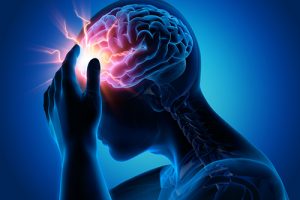- May 27, 2013
- Migraines, Safety Tips
An estimated 28 million Americans suffer from migraines—painful headaches often accompanied by nausea, vomiting, and sensitivity to light.
Migraines typically begin during the teen years; after puberty, migraines are more likely to affect girls and women. Migraines are more common in men than women, and a quarter of women who suffer from migraines report four or more attacks per month. Family history is a factor in determining susceptibility to migraines, and migraines are more common in people with epilepsy, depression, asthma, and some other neurologic disorders.

A migraine episode can last from four hours up to three days.
The exact causes of migraines are unknown, scientists now believe they are linked to inherited abnormalities in certain parts of the brain. What is known is that migraines involve a wave of unusual activity in brain cells, along with changes in blood flow in the brain. Regardless of the cause, migraine sufferers know they are painful, and can even be debilitating.
MIGRAINE PHASES
Migraines are considered episodes, not simply a condition. These episodes can be complicated and progress through several stages over a period of a few hours, or even days. These stages are:
- Prodromal Phase where patients begin experiencing warning signs, typically unusual sensations.
- Aural Phase experienced by about 1 in 5 sufferers, consisting of an “aura” before, or right as, the headache sets in.
- Attack Phase is when the pain sets in and may worsen over a period of hours or days.
- The postdrome phase occurs after the pain has subsided but leaves patients feeling tired, sluggish, or even confused.
TRIGGERS
Migraines can be triggered by any one of a variety of factors. One common trigger is emotional stress, which triggers the “fight or flight” response in the brain, causing protective chemicals to be released. For some, caffeine can also be a trigger. Excessive caffeine consumption or withdrawal from caffeine can lead to headaches when the caffeine level abruptly drops. Interestingly, caffeine is also effective in the treatment of acute migraines. Other triggers include:
- Chemicals and preservatives in food
- Changing weather conditions
- Strong smells (pleasant or unpleasant)
- Menstrual periods
- Changes in sleep pattern
- Excessive fatigue
- Skipping meals
- Pressure from hair accessories like ponytail holders or hats
- Strenuous exercise (including sex)
- Poor posture
- Red wine
PREVENTING MIGRAINES
A number of prescription medications are available which, when taken regularly, can prevent or reduce migraine episodes. These drugs may not be right for every patient, though, so if you suffer from migraines, you should discuss all available options with your doctor before beginning any preventive treatment. If you suffer from severe migraines, your doctor may recommend you first try a non-drug approach such as biofeedback, relaxation therapy, or stress management techniques. Some patients find these alternate treatments, along with preventive medications, produce good results.
If you find that you are unable to control your migraine pain with your usual medication or techniques, the physicians at Emergi-care are experienced in providing quick pain relief in a compassionate and understanding manner!
Emergi-Care is a fully licensed, freestanding critical care clinic in Houston, Texas, providing the NASA area community with a convenient alternative to overcrowded hospitals and urgent care centers by delivering fast, friendly, high-quality medical treatment in a comfortable neighborhood setting. For more information, visit www.emergicare.net.
